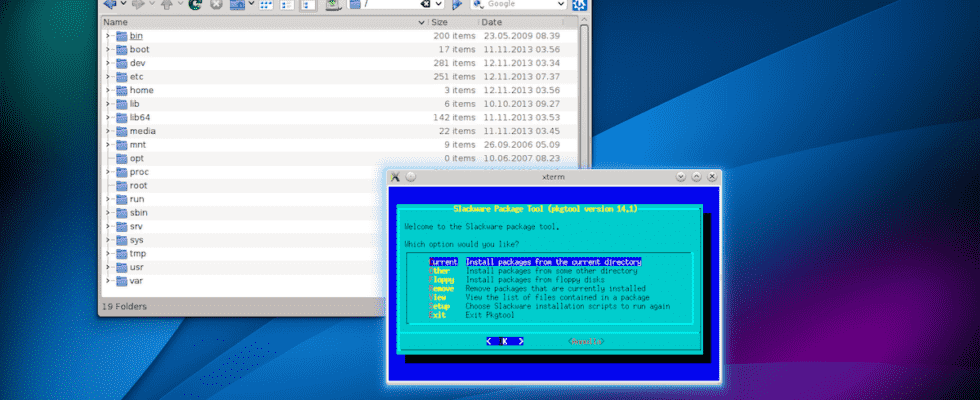The creators of Slackware Linux, the oldest Linux distribution still active, have just released its version 15.0. Slackware Linux emerged in 1993 and its founder Patrick Volderding continues to maintain the distro today, but hadn’t released a new version since 2016’s 14.2. As The Register notes, development of version 15 has been slow. , the stable version arriving a year after its creator unveiled the beta version.
The Slackware founder explains that his goal for this release was to modernize Slackware without alienating its fans, at a time when Linux development is moving away from its Unix-like structure. “The challenge this time around was to adopt as many good things as possible without changing the character of the operating system. Keep it familiar, but make it modern,” he argues.
Before releasing the stable version, Slackware maintainers built over 400 different versions of the Linux kernel before settling on version 5.15.19, which has long-term support until at least October 2023. They tested only 34 kernel versions while working on Slackware 14.2, according to Patrick Volderding.
A (very) enriched experience
The new distribution update includes a new desktop experience thanks to the inclusion in Slackware 15.0 of KDE Plasma 5, version 5.23.5, and Xfce 4.16. KDE also supports operation under Wayland or X11. Additionally, Zenwalk has also released a new version of its desktop environment built on Slackware 15 and based on Xfce 4.16.
On the package front, version 15 also brings the programming languages Rust and Python, version 3, while ditching Qt4 for Qt5. Also, Sendmail has been moved to the /extra directory and the default mail handler is now Postfix. Imapd and ipop3d have also been deprecated for Dovecot’s IMAP and POP3 servers. Slackware developers are warning users against Chromium, however, due to the Chrome Sync issue that plagued several Linux distributions last year. This release includes an updated version of Firefox.
The Slackware 15.0 x86_64 edition supports systems using UEFI firmware. For the founder of Slackware, “the software was the priority this time, not the loot”. As a result, “there are no CDs or DVDs to buy, nor new stickers, caps, pins or T-shirts”.
Source: ZDNet.com
